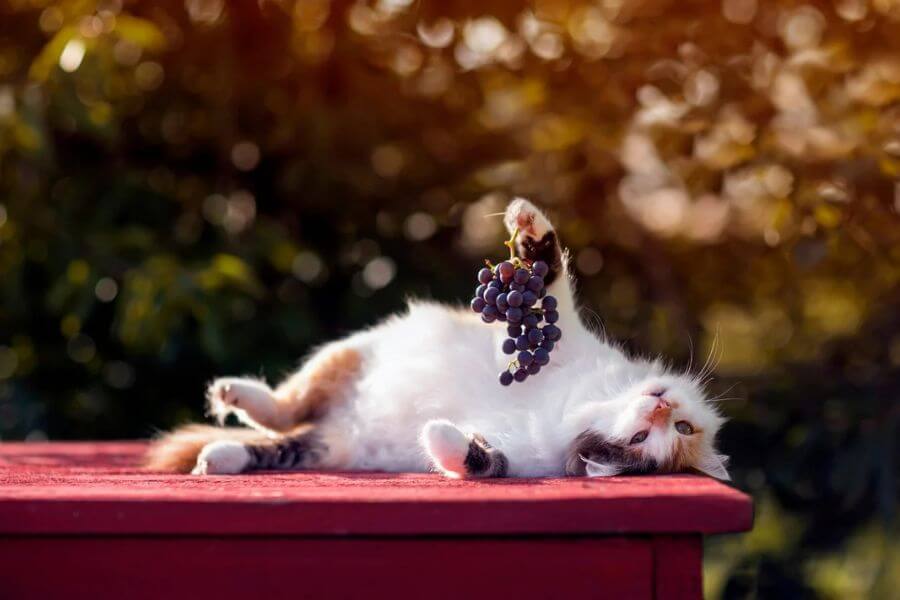Grapes, with their succulent taste and nutritional benefits for humans, have long been a popular snack. However, when it comes to sharing human foods with our feline friends, caution is paramount. The question arises: Can cats eat grapes? The answer is a resounding no. Grapes and their dried counterparts, raisins, are widely recognized as toxic to cats. While the exact substance in grapes that is harmful to cats remains unidentified, the consequences of ingestion can be severe and potentially fatal.
One of the primary concerns associated with grapes and raisins in cats is kidney failure. Even a small amount of these fruits (like apples too) can lead to adverse reactions, including vomiting, diarrhea, lethargy, and a decrease in appetite (check signs when your cat is sick).This includes not only refraining from intentionally offering grapes as treats but also ensuring that grapes and raisins are stored securely out of reach.
Some cats may show no adverse reactions to eating grapes, while others may experience severe consequences even with a minimal intake. Due to this unpredictable nature, it’s recommended to completely exclude grapes and raisins from a cat’s diet.
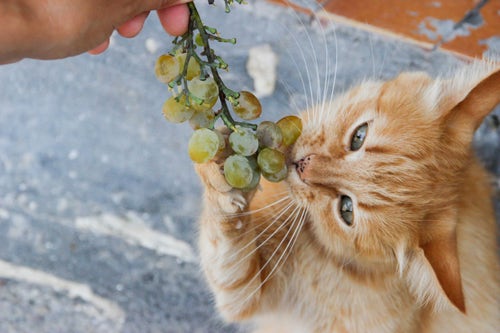
In the event that a cat is suspected or known to have ingested grapes, immediate veterinary attention is crucial. Early intervention can make a significant difference in mitigating the potential harm caused by grape toxicity. A veterinarian may induce vomiting, administer activated charcoal to absorb toxins, and provide supportive care to address any symptoms or complications. Cat owners should be mindful not only of the foods explicitly recognized as toxic but also of potential hazards that may be overlooked. This includes being cautious about leaving grapes (or other possibly dangerous fruits like bananas) unattended on countertops, tables, or in open grocery bags, where curious cats might be tempted to investigate.
Can cats eat green grapes?
The consumption of grapes, both red and green, by cats is a topic of concern among pet owners. There is no conclusive evidence that green grapes are less toxic than their red counterparts. The potential risks associated with green grapes are similar to those of red grapes. I would like to mention here that also other fruits, like watermelon and melon can cause severe health issues.
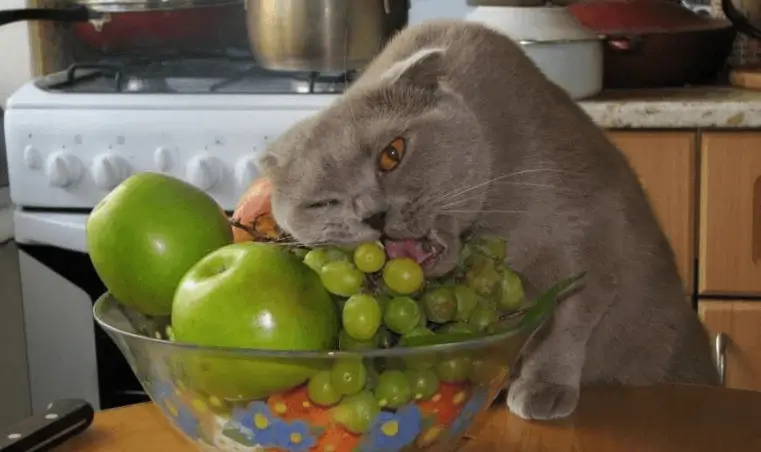
Can cats eat grape stems?
Feeding grape stems to cats is not recommended. While grape stems themselves may not contain the same toxic substances found in the grapes or raisins, they still pose potential risks to feline health. The stems can be a choking hazard, especially if they are long or have protruding parts that a cat may struggle to chew or swallow safely. Moreover, the act of chewing on grape stems could lead to splintering, causing damage to a cat’s mouth, throat, or digestive tract. Even small splinters can be problematic, potentially causing irritation or injury.
To prioritize your cat’s safety, it’s advisable to keep grape stems and any parts of grapes out of their reach. If there’s ever a concern that your cat has ingested grape stems or any other non-food item, monitoring for signs of distress and consulting with a veterinarian promptly is essential. While grape stems alone may not contain the toxic substances present in grapes, it’s crucial to ensure that your cat’s environment is free of potential hazards to promote their overall well-being.
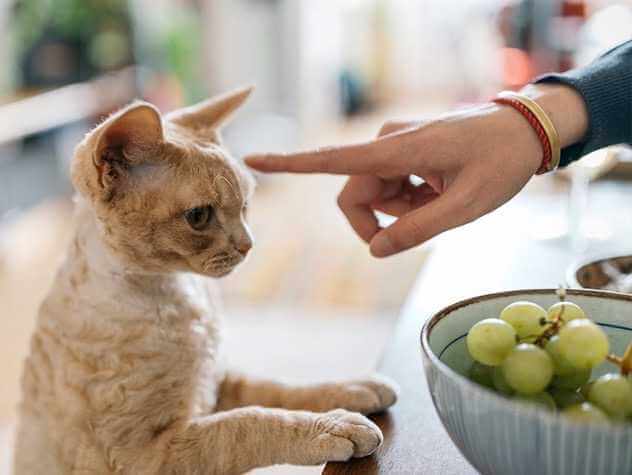
Can cats eat grape jelly?
Feeding cats grape jelly is not recommended. While cats are obligate carnivores and their diet primarily consists of meat, some felines may express curiosity about human foods, including sweet treats like grape jelly.
Can cats have grape juice?
It’s strongly advised against giving grape juice to cats. Cat’s digestive systems are not equipped to handle certain substances found in fruits like grapes. Ingesting grape juice can result in various symptoms.

Can cats eat grape leaves?
Feeding grape leaves to cats is not recommended. In the case of grape leaves, it’s crucial to err on the side of caution and avoid offering them to feline companions.
Can cats eat purple grapes?
Feeding purple grapes to cats is strongly discouraged due to the potential toxicity associated with grape consumption in felines. Grapes, regardless of their color, have been linked to severe health complications.

Can cats have seedless grapes?
Seedless grapes to cats are not recommended, because cats usually eat meat and its products and it is not easy for them to digest seedless grapes.
Can cats eat raisins?
Cats are strongly discouraged eating raisins as these fruits pose a serious threat to feline health. It’s crucial to keep raisins out of their reach and refrain from offering them as treats.
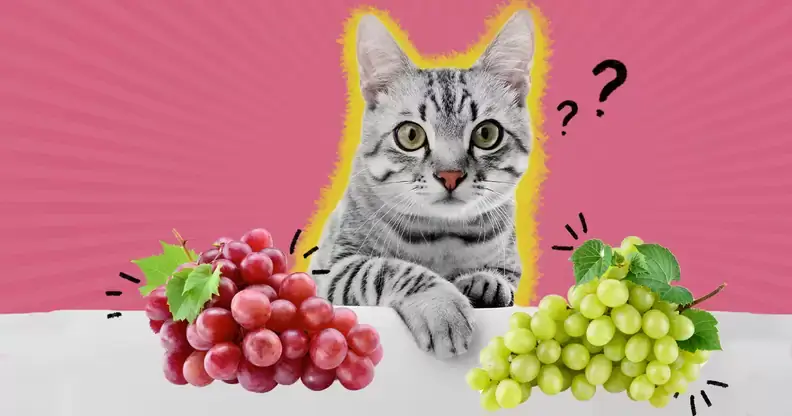
In conclusion, the evidence is clear: cats should not consume grapes or raisins under any circumstances. The potential for severe toxicity and the risk of kidney failure outweigh any perceived benefits or nutritional value. Responsible pet ownership involves staying informed about the foods that can be harmful to your cat and taking proactive measures to prevent accidental ingestion. If there’s any doubt about a particular food item’s safety, it’s always best to consult with a veterinarian for guidance tailored to your cat’s specific health and dietary needs.

